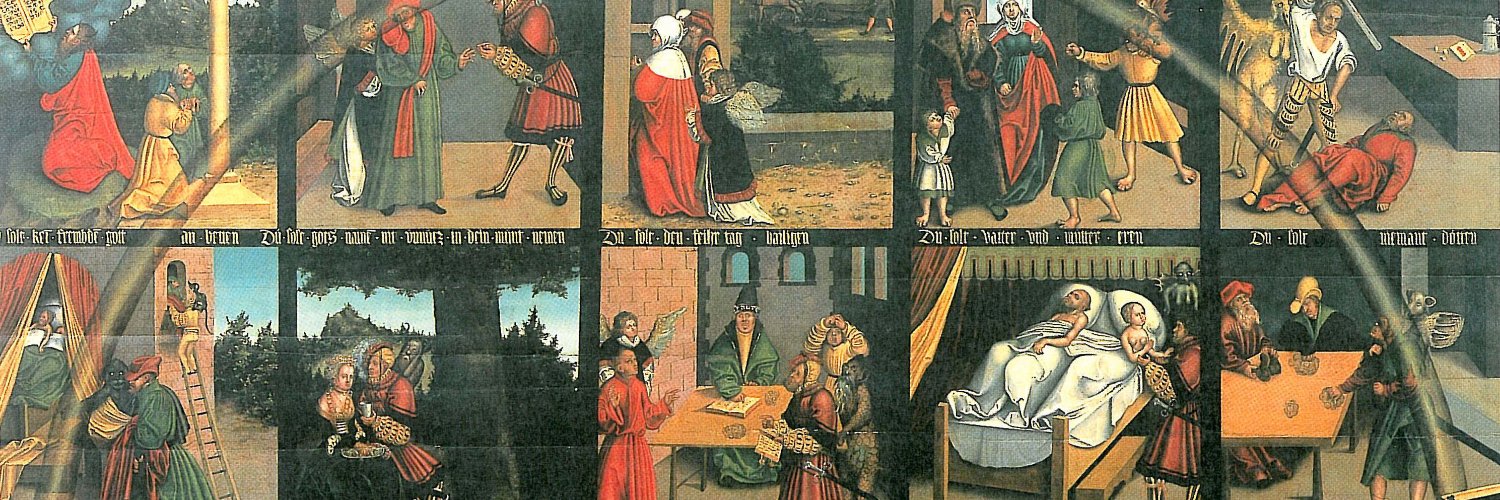
Tertius Usus
@TertiusUsus
So the law is holy, and the commandment is holy and righteous and good. Romans 7:12
“You are hearing once again a sermon about the many good works which Christians who believe and have confessed the Gospel are to do, so that we can perceive their faith from its fruits.” Luther, Epistle Sermon, Trinity 5
It is manifest that in the Augsburg Confession and its Apology these expressions are often used and repeated that good works are necessary. Likewise, that it is necessary to do good works, which also are necessarily to follow faith and reconciliation. Formula of Concord SD IV:14
“After [Christians] have faith, they are to demonstrate its fruits by good works in all kinds of situations.” Martin Luther, Church Postil, Easter 2 Epistle Sermon
Take care, dear friends, lest his many benefits turn into a judgement upon all of us, as will happen if we fail to live worthily of him and do harmoniously those things that are good and pleasing in his sight. -- 1 Clement 21:1
Is there a better definition of repentance (strict sense) than SD FC V:8? “To repent means nothing other than to truly acknowledge sins, to be heartily sorry for them, and to stop doing them.”
Therefore, the Sacrament is given as a daily pasture and sustenance, that faith may refresh and strengthen itself so that it will not fall back in such a battle, but become ever stronger and stronger. The new life must be guided so that it continually increases and progresses.
"There must be a continuous progression from Sinai to Zion, so that the object of justifying faith does not become Epicureanism or, as Peter says, 'a cloak for maliciousness'." Martin Chemnitz, Loci Theologici XIII.E.II
"The doctrine of the Gospel … instructs us concerning the twofold benefit of Christ, namely, reconciliation and sanctification or renewal … so that after we are justified we can also begin the new obedience." Martin Chemnitz, Loci Theologici XIII.E.II
"The pastor, therefore, who does not exalt the glory of Christian works and thereby make Christians eager to perform good works, deprives his congregation of a precious gift and commits a grievous sin." Francis Pieper
20th-century Lutheran homileticians: never end a sermon with exhortation. Johann Gerhard: am I doing it right?

“Blessed is he who follows the light of the divine Word; he will surely find the blissful path of repentance. Blessed is he who lets his cross and tribulation be the cause of repentance.” Johann Gerhard, Postil, Trinity 3
“This Gospel speaks of those sinners who draw close to Christ to hear him, that they may learn from his Word, confess their sins, begin to believe, and to amend their lives.” Martin Luther, House Postil, Trinity 3
… we cannot boast of the great merit in our works if they are considered apart from God’s grace … . …all is well if we boast that we have a gracious God. To this we must add that if good works do not follow, our faith is false and not true. Smalcald Articles III:XIII.3